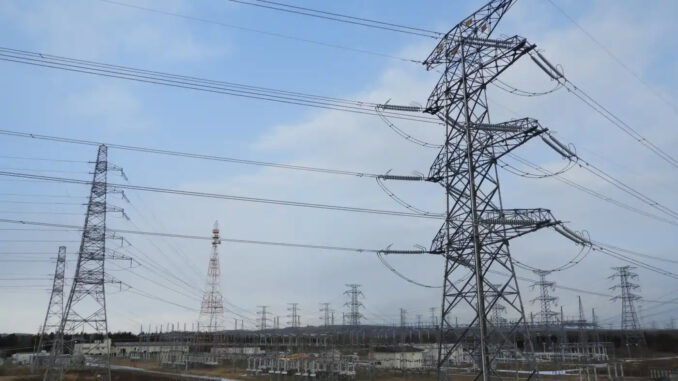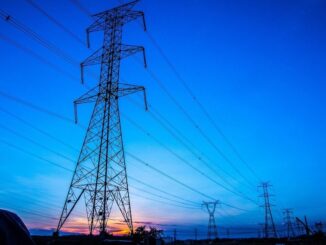
TOKYO — Japan will require power utilities to open up their grids to energy storage systems operated by other companies, aiming to promote a technology that will be key to broader adoption of renewable energy.
The government will also subsidize up to half the cost of battery storage systems, drawing from a 13 billion yen ($114 million) pot of funding in the fiscal 2021 supplementary budget, to make them competitive with other types of energy storage. It plans to solicit applications this fiscal year.
Large-scale battery storage is essential for stabilizing the fluctuating supply of electricity from such renewable sources as solar and wind, and more independent players are expected to enter the field as demand rises.
Japan already requires grid operators to allow other companies to connect power generation equipment to their transmission networks. The lack of a similar provision for batteries had raised concern among companies considering forays into the business that utilities would block their plans.
The legislative changes slated for submission to the current parliamentary session would also require businesses entering or exiting the field to notify the government. The government would be able to order the release of stored power in the event of an electricity shortage.
Japan aims to lower the cost of installing grid batteries to 23,000 yen ($200) per kilowatt-hour — on a par with pumped hydroelectric storage, which involves moving water between reservoirs at different elevations to store and release energy.
Tesla Japan has cut the price of its storage systems to around $440 per kilowatt-hour, including construction expenses. Covering half of this through subsidies would bring the final cost close to Japan’s target.
Japan looks to double its solar and wind generation capacity to between 127.1 gigawatts and 141.2 gigawatts by fiscal 2030. Experts say that grid storage equivalent to about a tenth of renewable capacity — in this case, about 10 gigawatts — is enough to keep supply stable. Japan now has almost no battery storage on the grid aside from trial projects.
Demand has risen for battery systems in other markets as renewable energy has gained ground. Sales of batteries for transmission grids in 2020 came to 1.4 gigawatt-hours in Europe, 2.23 gigawatt-hours in North America and 1.8 gigawatt-hours in China — but just 9 megawatt-hours in Japan. The U.K. has become a leader in the field amid its push into offshore wind, and the U.S. state of California’s market has grown as well.
Source: Nikkei Asia






